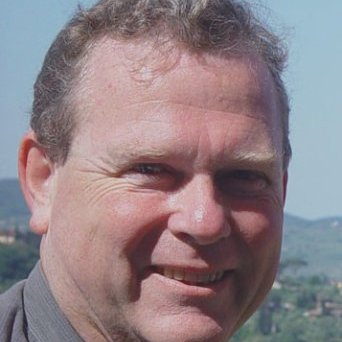 Geoff Huston is an Internet Pioneer. He lead the initial build of the Internet in Australia, has contributed significantly within the IETF, was a member of the Internet Architecture Board (IAB) from 1999 to 2005, served on the Internet Society’s Board from 1992 to 2001 (including one term as chair), has written several books
Geoff Huston is an Internet Pioneer. He lead the initial build of the Internet in Australia, has contributed significantly within the IETF, was a member of the Internet Architecture Board (IAB) from 1999 to 2005, served on the Internet Society’s Board from 1992 to 2001 (including one term as chair), has written several books, and served the Internet in numerous other capacities. Today he is APNIC’s Chief Scientist and is recognized as an authority on Internet research the world over. I got the chance to ask Geoff some questions for publication here recently; I hope you enjoy the conversation as much as I did.
dp: How do you describe the Internet to someone who has never experienced it?
GH: I rather like the explanation offered by Senator Ted Stevens: “Its not a big truck. The Internet is a series of tubes”. http://www.youtube.com/watch?
dp: Ah, yes, the Intertubes – similar to the Interwebs. Thanks for the laugh! What was your first experience with a computer?
GH: Back in highschool in the early 1970’s I recall doing FORTAN code on punched cards.
dp: What was your first experience with the Internet?
GH: In the early 1980’s in the Computer Science department at the Australian National University where I was working at the time there was an academic who returned from the States with an account on a US system that had internet access – so we used 300 baud dialup and headed out on to the Internet from there – VERY slowly.
dp: What was the first involvement you had with Internet technology development?
GH: I was very taken with Usenet in the mid 1980’s, but as I was working on VAX/VMS systems there was no way of getting this onto the VAX system and reading it there. So I read the RFCs and wrote a native version of Usenet news for VAX/VMS, and started distributing it via the DECUS collection. It seems that I was not alone in wanting a usenet feed into VAX/VMS, as it turned out to be a very popular package – I spent about 5 years tuning it up at the time.
dp: What was the first involvement you had with Internet policy development?
GH: I think that was what we were doing back in the early 1990’s, but we never used such a grand name for the activity. There was a lot of use of the term “coordination”, and an effort on the part of the various national and regional research folk to try and work together and obtain the greatest amount of leverage for the available funds. So we spent some time talking about what we were doing, and how that would mesh in with the related efforts by other research networking folk. At the same time there were parallel technology discussions, architecture discussions, operational discussions, so its not easy to identify “policy” as a distinct activity – which is why I suppose it all got lumped into the generic term of “coordination.”
dp: What has been, in your opinion, your most significant contribution to the Internet so far?
GH: One of the early pioneers in Australia, Robert Elz, used to say that if you put back more than you took from the network you were doing a good thing. I’d like to think that I have managed to live up to Robert’s principle, or at least tried to, and contribute more than I take. I’ve done a lot of volunteer work on the Internet over the years and through those voluntary positions I’ve learned a lot, made a lot of friends and hopefully helped the Internet along the way.
dp: I think few, if any, would argue that you haven’t. On the other side of that coin though, what is your biggest regret, regarding your involvement with the development of the Internet?
GH: This activity took a lot of my time, and inevitably the cost in terms of time was borne by my family. Its hard to get the right work / life balance, and my biggest regret is in being unable to devote less time to my work at the time.
dp: One of the activities that took so much of your time was building the Australian Internet; what would you say is the most striking difference between Internet development in Australia and in the US?
GH: That’s the funny thing – there really was not a lot of difference – yes the community was a tenth of the size and we all knew each other very well, but by the time of the NSFnet in the US the mid level network folk knew each other very well and had developed a sense of community, so I really can’t see that much was different. We went though similar issues with research network funding, the commercialisation of the activity and the issues related to the entry of the larger telcos into the network. Not much differed apart from the differences in scale.
On the other hand this scale difference was useful for us. We got to the point of 10s of megabits some years after the NSF, so our transition to E3 circuits was in some ways an easier and well informed transition. Similarly the next waves of build-out from tens to hundreds of megabits, then to gigabits was treading a path that had already been defined by larger markets some years earlier.
dp: You were recently inducted into the Internet Hall of Fame, can you describe that experience?
GH: Certainly that was a surprise for me. I have been part of a group of friends who have been working in this space for the past twenty five years, and I don’t think of myself as being so different in my efforts over this period. So, surprising in that sense. It was terribly kind of the folk at ISOC to recognise my efforts in this way.
dp: How do you use the Internet today?
GH: Much the same as many many others I suppose. I distance commute with my job so for me the Internet is indeed my working environment.
dp: What’s the next big thing for the Internet?
GH: ah – if I knew that then…
Seriously, we’ve had these “next big thing” conversations many times and what actually has turned out to be the next big thing is always a surprise. and maybe because its a surprise that’s why its the next big thing. So yes, I am constantly being blown away by the next big thing, and each time its a surprise to me!
dp: Where do you see the Internet taking us in 10 years?
GH: Look at the changes since 2002. If we do half as well as that last 10 years then by the end of the next decade much of what we’ll be doing on the internet will be completely alien and different to today. Already we are seeing more things come along with us in our packets via a mobile Internet and we go to particular activities less and less. Whether its shopping or work in many ways the Internet is changing everything. So in 10 years if we continue to manage computing, storage and communications as abundant commodities then we will continue to witness relentless driving change in our world.
dp: Speaking of changes, what are you working on today?
GH: Stuff!
dp: Fair enough, but what should other folks, just getting into Internet technology, be focusing on?
GH: That’s not easy – because its no longer “Internet technology” but a myriad of more specialised topics. I spent a lot of time reading the early IP books – Doug Comer’s TCPIP book, Radia Perlman’s Interconnections book and Richard Stevens book on network programming were all really informative works for me – if you want to contribute then a comprehensive deep understanding of where we are today and why we are where we are in invaluable.
dp: And what should folks just getting into Internet policy be focusing on?
GH: I have no idea – in variably this area lies in the intersection of technology, business and politics and what we see in this space are folk who come from one of these three areas with limited experience in the other two. This makes for fractured conversations and, even worse, fractured outcomes. Perhaps in the policy space a little humility would not hurt. In engineering and technology your own gaps in knowledge and understanding should be self-evident. In the policy space the same gaps in knowledge and understanding exist but are nowhere near as self-evident, and this often distorts policy outcomes is strange ways.
dp: Is there something out there that will dwarf the Internet with regard to its impact on society?
GH: What? Like climate change? Or massive geological activity of a seismic or volcanic nature? Or like another encounter with a 10km meteorite? Or at the other end of the scale, humankind encountering a new viral strain that is as lethal as the plagues of previous generations? Yes there are many things out there that in previous generations have completely re-written society,and indeed rewritten life on this planet in their wake, and they will inevitably recur at some time or other.
But if we ignore, for a second, these grander risks and just look at the world of telecommunications, then I’m confident that the environment will continue to change, and some of these changes will be slight and some will be quite fundamental. Sorting out one from the other is not as easy as it might look.
dp: Thanks Geoff! A pleasure, as always.






